The triangular fibrocartilage complex (TFCC) is a crucial structure in the wrist that stabilizes the joint, facilitates smooth movement, and helps support weight-bearing activities. Located on the ulnar side of the wrist (toward the little finger), the TFCC comprises a group of ligaments and cartilage that cushion and connect the forearm bones (radius and ulna) to the small bones in the wrist. Due to its role in wrist stability and load distribution, the TFCC is highly susceptible to injury, particularly from activities requiring frequent wrist rotation, sudden impact, or twisting movements.
TFCC injuries can vary widely in severity. They range from minor tears and strains of the ligaments to severe cartilage damage that compromises wrist function. These injuries often result from acute trauma, like falling on an outstretched hand, or from chronic overuse, commonly seen in sports such as tennis, golf, and baseball. Manual laborers and individuals in jobs requiring repetitive wrist motions are also at higher risk. Symptoms of a TFCC injury typically include persistent pain on the ulnar side of the wrist, swelling, reduced range of motion, and weakened grip strength. Without appropriate treatment, a TFCC injury can worsen over time, potentially leading to long-term functional limitations and chronic pain.
Physiotherapy plays a vital role in the conservative management of TFCC injuries, offering a non-surgical pathway to recovery. By focusing on reducing pain, restoring wrist mobility, building strength, and improving proprioception, physiotherapy enables a comprehensive recovery approach. Through targeted exercises, manual therapy, and specialized techniques, physiotherapists can help patients regain wrist stability, enhance grip strength, and prevent reinjury.
Understanding TFCC Injuries
TFCC injuries can result from:
- Trauma: Falls onto an outstretched hand, sudden twists, or excessive wrist bending.
- Degeneration: Wear and tear from repetitive activities, especially in sports like tennis, golf, and baseball, or jobs requiring constant wrist rotation.
Symptoms of TFCC injuries include:
- Pain on the ulnar side of the wrist
- Swelling
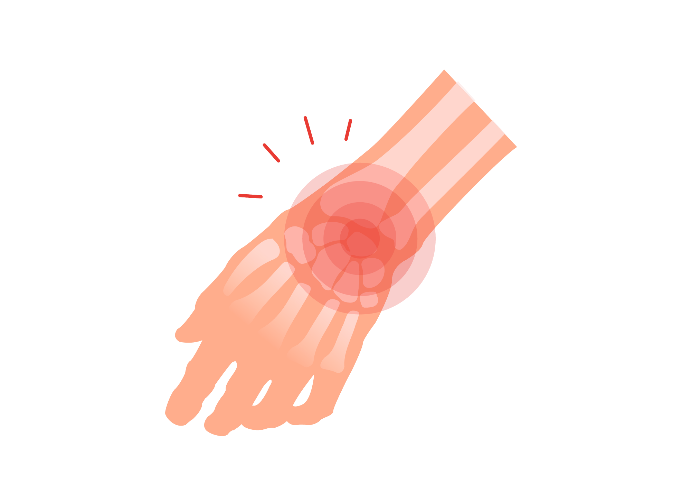
- Reduced wrist motion
- Weak grip strength
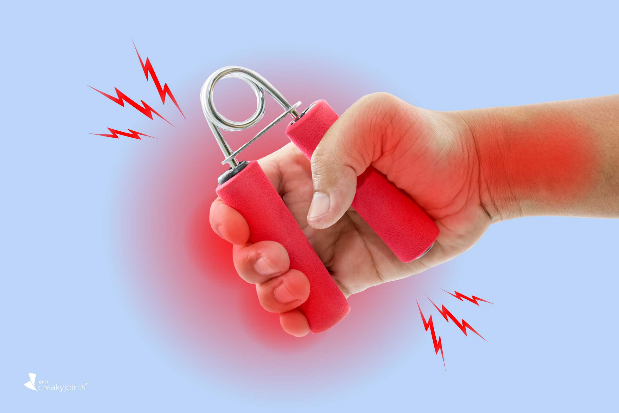
- Clicking or popping sensation with movement
The Role of Physiotherapy in TFCC Rehabilitation
Physiotherapy is a primary treatment method for TFCC injuries, focusing on reducing pain, regaining function, and restoring strength. Physiotherapists create individualized rehabilitation plans that typically involve the following stages:
 1. Pain and Swelling Management
1. Pain and Swelling Management
- Rest and Immobilization: Initial immobilization using a brace or splint helps to protect the injured area, reducing stress and allowing tissues to heal.
- Ice Therapy: Ice packs applied to the wrist help reduce swelling and pain by constricting blood vessels and limiting inflammation.
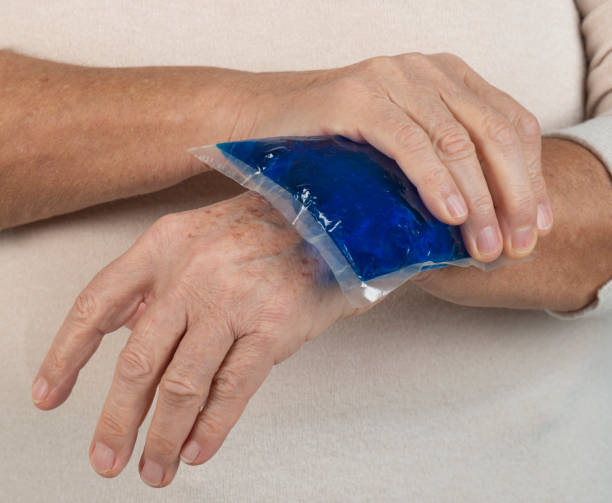
- Electrotherapy: Techniques like transcutaneous electrical nerve stimulation (TENS) can provide pain relief by interrupting pain signals to the brain.
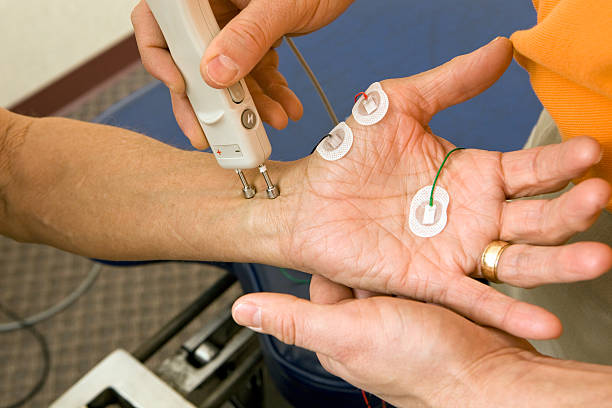 2. Improving Range of Motion
2. Improving Range of Motion
- Gentle Mobilization: After initial pain management, gentle mobilization exercises restore joint movement and prevent stiffness.
- Passive and Active Exercises: Therapists may guide the wrist through movements passively before advancing to active exercises where the patient moves the wrist independently.
- Stretching: Gentle wrist stretches improve flexibility and help reduce tightness around the joint.
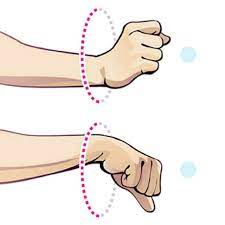 3. Strengthening the Wrist and Forearm Muscles
3. Strengthening the Wrist and Forearm Muscles
- Isometric Exercises: Begin with isometric exercises to strengthen muscles without moving the wrist joint. These exercises help maintain muscle tone and reduce strain.
- Resistance Band Exercises: Gradual use of resistance bands builds strength in the forearm and wrist muscles, which support the TFCC and stabilize the wrist.
- Grip Strengthening: Exercises using a grip trainer or therapy putty improve grip strength, vital for daily activities and preventing reinjury.
 4. Proprioception and Stability Training
4. Proprioception and Stability Training
- Balance and Coordination Exercises: Exercises that focus on balance and wrist coordination help the brain relearn how to control the wrist effectively.
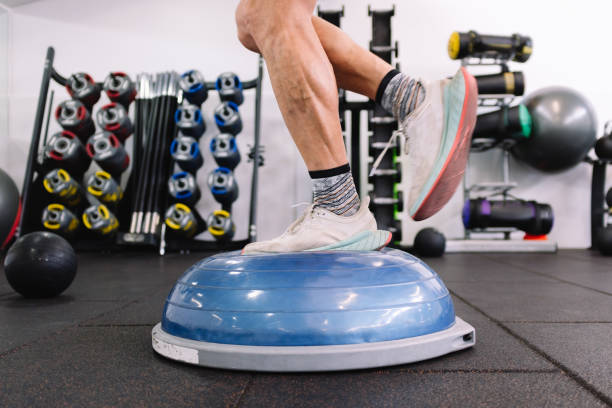
- Stabilization Exercises: Functional wrist stabilization exercises, such as weight-bearing exercises on the affected wrist, train the muscles to protect the TFCC during high-load activities.
- Hand-Eye Coordination Drills: Movements requiring precise hand-eye coordination improve proprioception, essential for sports performance.
5. Functional Training for Daily Activities
- Gradual Load-Bearing: In sports rehabilitation, progressive load-bearing exercises help patients safely transition back to their routines, reducing reinjury risk.
- Activity-Specific Training: Therapists tailor exercises to replicate movements common in the patient’s daily life, work, or sports.
- Ergonomic Adjustments: For patients in high-risk occupations, physiotherapists may advise ergonomic adjustments to minimize repetitive strain on the TFCC.
Advanced Techniques in TFCC Physiotherapy
- Kinesiology Taping: Applying kinesiology tape can provide added support, reduce pain, and improve proprioception by stimulating sensory receptors in the wrist area.
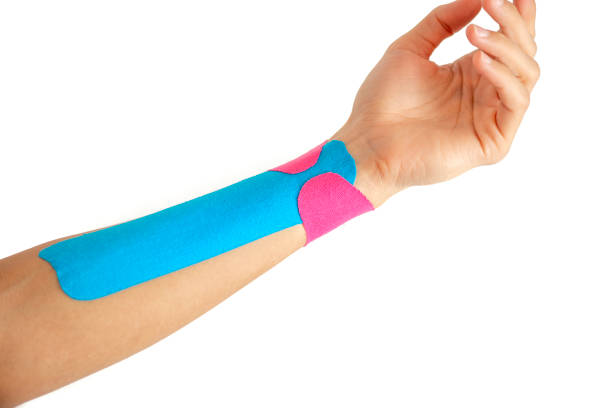
- Ultrasound Therapy: Ultrasound stimulates blood flow and promotes tissue healing, potentially accelerating recovery in complex TFCC injuries.
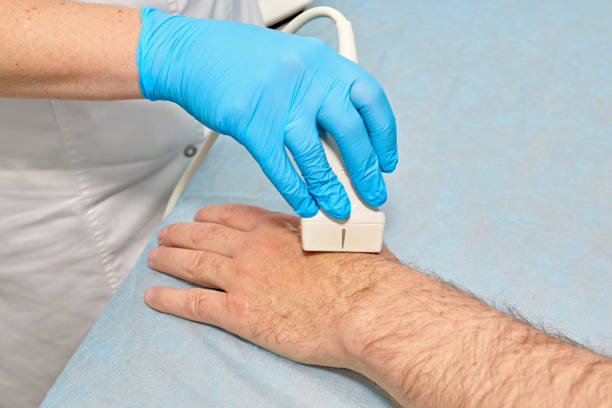
- Manual Therapy: Skilled manual techniques by a physiotherapist can improve joint mobility and release tight structures around the wrist.

Expected Outcomes and Recovery Timeline
Recovery from a TFCC injury through physiotherapy varies based on the injury’s severity and the patient’s dedication to the rehabilitation process. Mild injuries can heal within 4-6 weeks, while more severe cases may take several months. The primary goals include:
- Return to Activity: Gradually reintegrating the patient into sports, work, or other high-demand tasks safely.
- Pain-Free Range of Motion: Restoring full wrist mobility without discomfort.
- Improved Strength: Achieving strong wrist and forearm muscles that can handle daily activities and prevent reinjury.
Preventive Tips to Avoid TFCC Injuries
- Strengthen the Wrist Muscles: Regularly performing wrist and forearm exercises helps build resilience.
- Use Proper Technique: Ensuring proper form in sports and repetitive tasks can prevent undue strain on the TFCC.
- Take Breaks: Frequent breaks reduce the risk of overuse injuries, especially for those involved in repetitive wrist movements.
_________________________________________________________________________________________________________________________________________________________________________________
Why Choose Urban Sports & Physio Centre for TFCC Rehabilitation?
Urban Sports & Physio Centre offers a comprehensive, personalized approach to TFCC rehabilitation. Our expert team uses evidence-based methods tailored to each patient’s needs, helping to ensure optimal recovery and minimize the risk of reinjury. With state-of-the-art facilities and an experienced team, Urban Sports & Physio Centre is committed to guiding you back to full wrist function and strength, empowering you to get back to your daily activities or sports with confidence.
This targeted approach not only accelerates recovery but also instills the skills necessary for long-term wrist health and injury prevention.
Conclusion
TFCC injuries can significantly impact wrist function, limiting daily activities and athletic performance. However, with a structured physiotherapy approach, recovery is not only possible but can also lead to stronger, more resilient wrists. Through a combination of pain management, mobility exercises, strengthening, and functional training, physiotherapy effectively restores wrist function and prevents future injuries. At Urban Sports & Physio Centre, our dedicated team provides individualized care to support your recovery journey, ensuring that you regain strength, confidence, and the freedom to engage fully in your daily life or athletic pursuits.
#TFCCRehabilitation #WristInjuryRecovery #PhysiotherapyForWrist #HandAndWristHealth #TFCCInjuryRecovery #WristRehabilitation #TFCCInjuryTreatment #HandInjuryRecovery #TFCCHealing #WristPainRelief
#PhysicalTherapyForWrist








.png)




 Malaysia
Malaysia